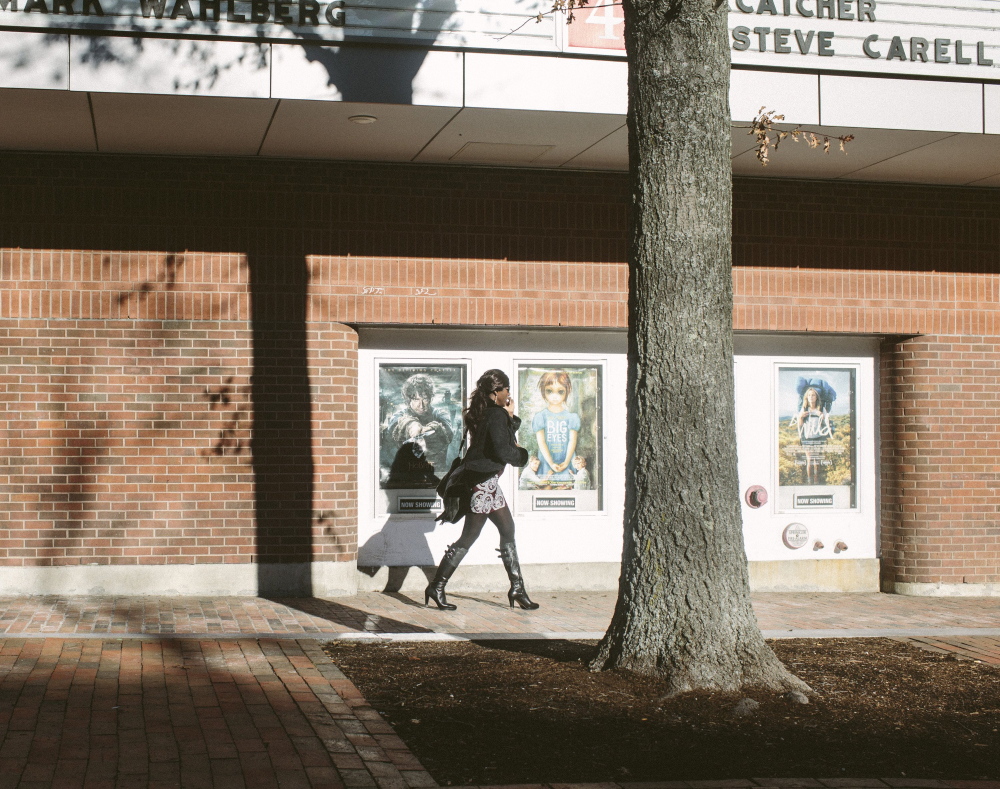The state of Maine soon may take a tax bite out of the peanut butter and jelly sandwich.
As part of what would be the most sweeping and ambitious tax overhaul in years, Gov. Paul LePage has proposed increasing Maine’s sales tax to 6.5 percent from 5.5 percent and applying it to dozens more goods and services in order to help pay for cuts to Maine’s income tax rate. The result, according to the LePage administration, will be a better balanced, more modern tax code that would reduce Mainers’ total tax burden by $300 million over the next two years.
As a product of “processed or treated” nuts, peanut butter would be on the list of the Maine Tax Man’s potential new targets alongside doughnuts, potato chips, trail mix, cheese puffs and beef jerky. But the sales tax expansion would go far beyond Mainers’ snacking habits.
The private investigator hired to snoop on an unfaithful spouse would be required to collect taxes for the first time, as would the lawyers and accountants handling the subsequent divorce. Car repairs would remain tax-free, but the tow to the mechanic would cost more. Haircuts, pedicures, movie and concert tickets, visits to museums and petting zoos – all would be taxed as the governor seeks to reap more revenue from the discretionary spending of Mainers and tourists.
“Yeah, we are broadening the sales tax but, (by) the same token, we are going to a consumption-based tax structure so you pay-as-you-go rather than … every Friday you take money out of your paycheck and you send it to the government,” LePage said recently. “It’s going to be in your paycheck, and if you choose to go golfing on the weekend, it will cost you … 6½ percent more.”
ROUGH ROAD AHEAD FOR PROPOSAL
The Republican’s sweeping proposal – which includes a 2.2 percentage-point cut to the top income tax rate as well as elimination of the estate tax and military pension taxes – faces a difficult road in the months ahead. Lawmakers, including many within his own party, are expected to dissect and rewrite the governor’s $6.3 billion budget proposal by the time the new fiscal year begins in July.
The governor’s proposal also is burdened by the failure of a 2009 Democrat-written tax reform law that similarly paid for lower income taxes by applying the sales tax to more than 100 goods and services. Republicans and business interests teamed up to overturn the measure at the ballot box a year later.
David Trahan, a former Republican state senator from Waldoboro who led that fight and then shepherded a LePage tax cut bill through the Legislature a year later, said he has “personal concerns” about the governor’s sales tax proposal.
“I’m quite surprised to see this package come forward so quickly and I think you are going to see a lot of uncomfortable people” in the Republican caucus, said Trahan, who now serves as executive director of the Sportsman’s Alliance of Maine. “I will say the governor was quite bold.”
RETAILERS ANALYZING THE IMPACT
The Retail Association of Maine and its executive director, Curtis Picard, also were major players in the 2010 referendum to overturn the Democrat-sponsored law. On Wednesday, Picard said his organization and its member businesses were digesting LePage’s more complex and sweeping tax proposal – a reserved response heard over and over again this week at the State House from groups on both sides of the political aisle.
Picard said members – and especially those near sales-tax free New Hampshire – were “certainly concerned” about the potential sales tax increase. But he was pleased to see that taxes would be applied to other services, including lawyers, who have escaped past efforts to end their tax exemption.
“If it falls on the backs of small businesses, I’m sure you’re going to hear from them loud and clear,” Picard said.
SERVICE BUSINESSES CONCERNED
The targets of a broadened service tax are, not surprisingly, unhappy to be subject to a new levy.
“It’s definitely going to have an impact,” said Al Butler, owner of Hair Affair in Portland. He said even an increase of a few dollars in the cost of going to his hair salon will make customers wait a little longer between cuts.
“We’re getting a little reprieve on gas and oil these days, but that’s short-term,” Butler said.
David Scott, owner of the Nickelodeon theater in Portland, agreed.
Movies are a discretionary activity for families, he said. For a family of four or five, the added cost from the tax might make them think twice before going out for a night at the movies, he said.
“They wouldn’t come – that would be my fear,” Scott said.
CALCULATING COST OF EXEMPTIONS
The LePage administration estimates that the proposed changes – both the sales tax increase and the application of taxes to more goods and services – would generate $617 million over the next two years, according to the fiscal note released Wednesday. Budget documents from last year also provide a sense of how much each exemption is worth.
The state estimated it would lose $24.8 million this year by exempting ticket sales at movie theaters, sporting events, racetracks, amusement parks and other locations that provide “recreational services.” The tax exemption on fees charged by lawyers, accountants and other business or legal professionals was valued at $21.7 million, while barber shops, beauty parlors and health clubs accounted for another $6.1 million, according to a report to the Legislature’s Taxation Committee.
BETTER BUSINESS CLIMATE RANKING
Sales taxes were introduced in the 1930s and were based on an economy that primarily produced goods, said Jared Walczak, a policy analyst with the Tax Foundation, a Washington, D.C., think tank that analyzed LePage’s budget and tax proposals. But that scenario does not reflect the economy’s shift to more service transactions in the decades since, he said.
Economists measure the percentage of each state’s economy subject to sales taxes as a way of determining how broadly those taxes extend into service transactions. At 40.6 percent, Maine comes in just above the national mean of 38.8 percent, Walczak said. Tourism- and services-dependent Hawaii has the broadest base at 105.1 percent of its economy subject to sales taxes, meaning goods and services are subject to multiple taxes before a final transaction.
Although the sales tax changes would cause Maine to fall in the foundation’s rankings in that category, the organization predicted Maine would climb from 33rd to 23rd in overall “business tax climate” if LePage’s proposals are adopted.
“We’ve moved from a goods-based economy to a service-oriented economy,” Michael Allen, head of Maine Revenue Services, said Wednesday. “And yet our sales tax base relies heavily on two areas: automobile sales and housing materials. … If you look at the Great Recession, the two areas that were hit the hardest were the automobile industry and residential housing. That base did not serve the state well during that recession or during previous recessions.”
A SENSITIVE SUBJECT POLITICALLY
Those same arguments were made in 2009 by supporters of the tax reform measure signed by Democratic Gov. John Baldacci, only to be repealed by voters a year later after a confusing referendum campaign in which both sides accused the other of trying to stick Mainers with higher taxes.
LePage and Republican lawmakers rode that anti-tax wave to victory five months later, winning the governor’s mansion and control of both legislative chambers for the first time in decades. Although LePage’s proposal provides more tax relief than the 2009 law, Republican and Democratic lawmakers as well as business interests have been conspicuously quiet or reserved on the governor’s budget plan.
Matt Gagnon, CEO of the Maine Heritage Policy Center, a conservative think tank heavily involved in tax issues, compared the current atmosphere in the State House to the early stages of a boxing match in which the parties are sizing up each other. Gagnon said his organization isn’t taking a position until it determines the budget proposal’s impact on the average Mainer, as well as on the state as a whole.
“There are a lot of very positive things in this budget, but we have to weigh that against what I think (conservatives) would agree is not their favorite part, which is increasing the sales tax,” Gagnon said.
IMPACT ON JUSTICE, AND PRAISE
Some groups targeted for taxation are expressing displeasure, however.
“Fundamentally, we have some questions,” said Maine State Bar Association President David Levesque.
Adding 6½ percent to a lawyer’s bill might not pass constitutional muster and could restrict some people’s access to justice by driving up costs, Levesque said. He also questioned the fairness of taxing one group of professionals – lawyers – and not others, such as doctors.
“Right now, there are way too many self-represented litigants, and if you raise the costs even higher, more litigants will go on their own, and that would be unfortunate for the system and the client,” he said.
But some business owners are in favor of LePage’s long-term goal of eliminating the income tax, even if it means shifting and expanding sales taxes.
Eric Pooler, the owner of Gold Star Cleaners in Bangor, believes getting rid of the income tax will create more economic activity.
“If it’s raising taxes on services to eliminate the income tax, then I am for it,” he said. “I’m not in favor of any expansion of any tax, but with that said, if it’s there for the purpose of eliminating the income tax, that’s a good thing.”
Staff Writers Edward D. Murphy and Steve Mistler contributed to this report.
Send questions/comments to the editors.





Success. Please wait for the page to reload. If the page does not reload within 5 seconds, please refresh the page.
Enter your email and password to access comments.
Hi, to comment on stories you must . This profile is in addition to your subscription and website login.
Already have a commenting profile? .
Invalid username/password.
Please check your email to confirm and complete your registration.
Only subscribers are eligible to post comments. Please subscribe or login first for digital access. Here’s why.
Use the form below to reset your password. When you've submitted your account email, we will send an email with a reset code.